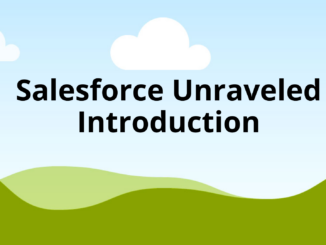Salesforce experts are the backbone of organizations’ CRM success, offering a wealth of knowledge and experience to optimize the Salesforce platform. However, the intense demands of this role can lead to burnout without the right strategies in place. In this article, we will explore the best ways for Salesforce experts to prevent burnout, maintain their enthusiasm, and continue contributing to their organization’s success.
Establish and Respect Boundaries
Boundaries are crucial in preventing burnout for Salesforce experts. Establishing clear distinctions between work and personal life helps maintain a healthy work-life balance. Knowing the pressures Salesforce projects often are under, it is very difficult to say No to clients when there are key developments taken place or time is under pressure. In addition, whenever major system changes need to happen, this needs to be done out of work hours, making it more complicated to avoid working evenings or weekends. With that in mind there are still some things we can do:
- Define specific working hours and adhere to them rigorously.
- Avoid responding to work-related communications during personal time.
- Communicate your boundaries with colleagues and clients to set realistic expectations.
Prioritize Self-Care
Self-care is essential for Salesforce experts to maintain physical and mental well-being. Prioritizing self-care can prevent burnout:
- Engage in regular physical activity to reduce stress and boost mood.
- Maintain a balanced diet to provide essential nutrients for cognitive and physical health.
- Ensure you get adequate, high-quality sleep to recharge both your mind and body.
- Practice meditation and mindfulness to reduce stress and enhance focus.
Whenever possible use breaks to go out for a bit and enjoy the weather. Difficult as it can be to go away from the desk, sometimes just going outside for 5 mins and take a breather helps in re-setting the day. At the end of the day, have a clear break between work and not work. If possible, close the laptop and leave it in another room. Switch your notifications on your phone off. Go out for a walk to clear the head, if needed use that time to talk things through. If you do not or cannot talk things through, find a good meditation or walking app, to help you focus on relaxing and getting ready for the evening.
Delegate When Possible
Recognize when you can delegate tasks or seek support. Delegating can alleviate stress and help maintain a healthy work-life balance:
- Assign administrative and non-core tasks to support staff or colleagues.
- Collaborate with fellow experts to share the workload and ensure consistent coverage.
- Don’t hesitate to ask for help when necessary.
Of course within projects we are often the experts can have limited options to delegate our work. However, working close with colleagues and sharing work or just talk with them to find a solution can be a great way in helping lessing the burden of the work load. This has become more complex now many of us work from home most of the time, so think about maybe starting an online Friday Tea break or a Wednesday Munchies session. Just blocking out some time in the calendar once week to talk with colleagues can be really helpful.
Continuous Learning
Salesforce is ever-evolving, with frequent feature updates. Continuous learning is vital for Salesforce experts to stay at the forefront of their field:
- Dedicate time to stay updated with Salesforce releases and new features.
- Participate in relevant training programs, webinars, and conferences.
- Join Salesforce communities to learn from and network with other experts and professionals.
Probably one of the biggest challenges we all have is to keep on learning. Working long and flexible hours can make it difficult to find time to learn. Try to plan as much in advance, for example many events and release dates are known well ahead of time. Pencil them in early if you want to attend and carve out time before and after to consolidate the learning.
Time Management
Effective time management is essential for preventing burnout. Implement time management strategies to reduce stress and workload:
- Prioritize tasks based on importance and deadlines.
- Use time management techniques to maintain focus and productivity.
- Automate repetitive tasks and workflows using Salesforce tools and third-party apps.
Try different planner options and find what works. For example get a desk week planner, plan out every meeting and activity for the week ahead, make sure to inclue breaks! During the day, set yourself timers of for example 45 mins blocks. Focus on work for 45 mins, take a couple of minutes break, set the timer again. This can help bitesizing the work, feeling less overburdend and stay on track.
Set Realistic Expectations
Set realistic expectations for yourself and the clients you serve to prevent stress and burnout:
- Communicate clearly with clients about the time and resources required for optimal results.
- Be realistic about what can be accomplished within a given timeframe.
- Manage client expectations by discussing the process and potential challenges upfront.
The world of Salesforce is flexible and changing, and on a daily basis things happen that will throw a spanner in our plans. Take these into account when setting timeframes. It’s better to deliver early then to ask for more time.
Seek Peer Support
The Salesforce community offers numerous opportunities to connect with other experts and professionals. Peer support can help share experiences, challenges, and solutions:
- Join Salesforce-related online communities, forums, and social media groups.
- Attend local and virtual Salesforce user groups and meetups.
- Engage in conversations and knowledge sharing with fellow experts and enthusiasts.
Maintain a Growth Mindset
A growth mindset allows you to view challenges as opportunities for personal and professional growth. Cultivate a positive outlook:
- Focus on the satisfaction of helping clients achieve their goals.
- See challenges as chances to develop new skills and problem-solving abilities.
Regularly (monthly / quarterly) review the achievements of the past period. Focus on the positive but learn from where things didn’t happen. What caused things to go not according to plan and how can we avoid in the future. Then reset the plan and if needed redefine timeframes based on the learnings from the previous period.
Salesforce experts are the driving force behind organizations’ CRM success. With the right strategies in place, we can continue to thrive and make a significant impact in their organizations.




Be the first to comment